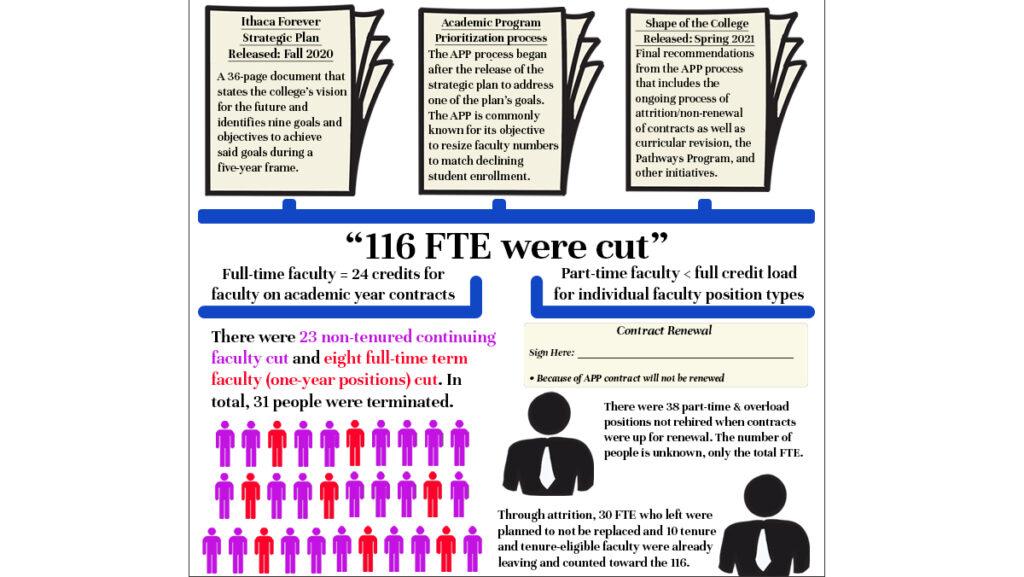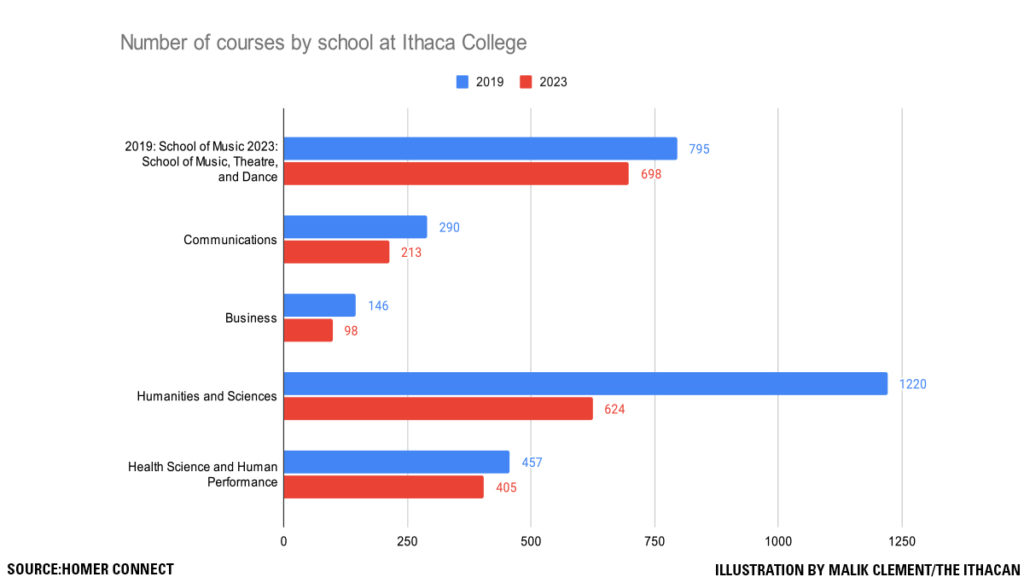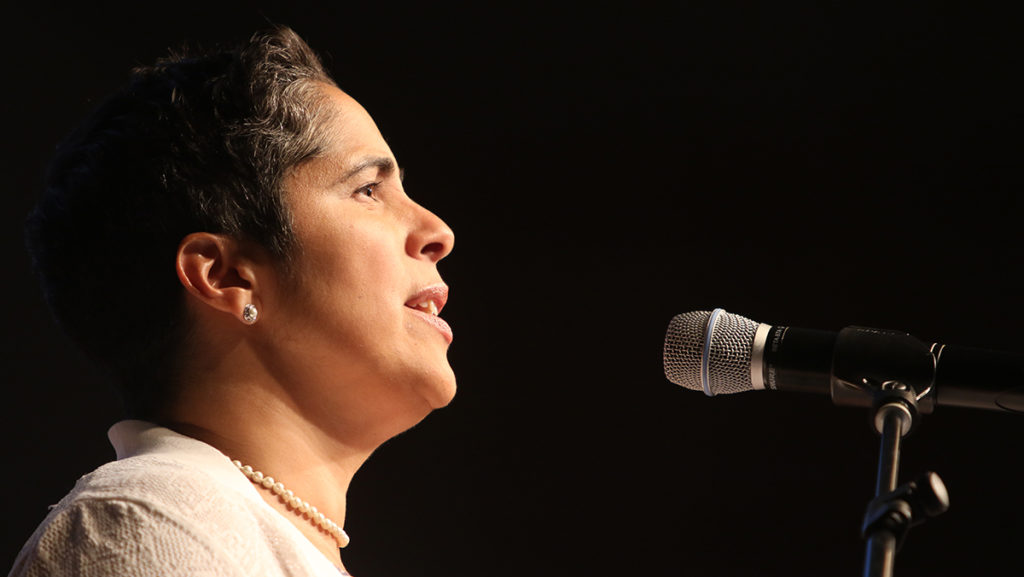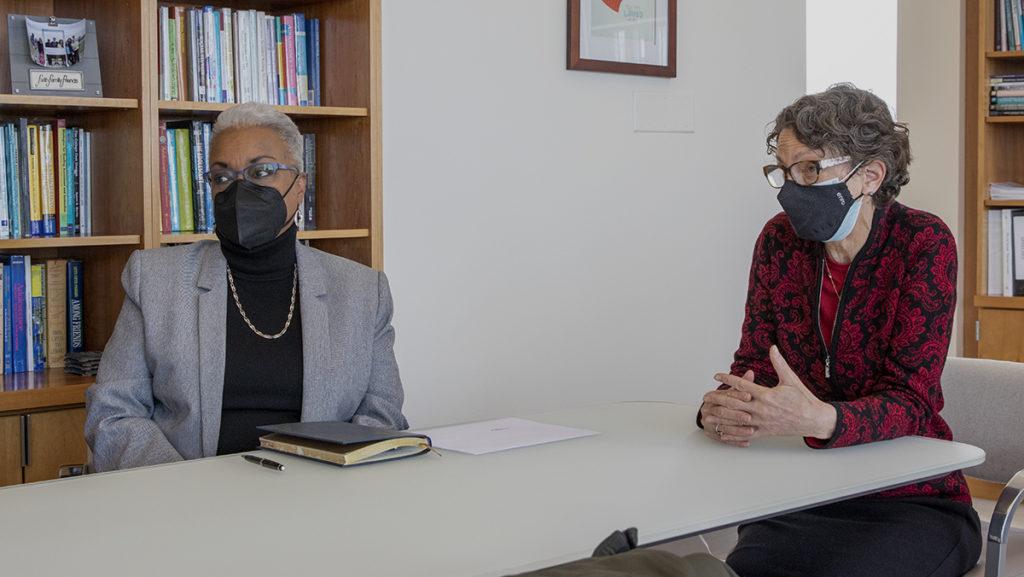Ithaca College will be terminating faculty members as a result of the Academic Program Prioritization (APP) process, some of whom are people of color. However, the college will not release data on the diversity of faculty by rank — so it is difficult to evaluate the APP’s impact on faculty of color.
As of Fall 2020, 12.2% of faculty identified as Black, indigenous or people of color, according to the college’s Office of Analytics and Institutional Research. Additionally, 2.8% of the faculty identify international origins. In accordance with Section 4.9.8 of the Ithaca College Policy Manual, contingent faculty are laid off before tenured and tenure-track professors. Contingent faculty are considered temporary full-time and part-time professors. Many, however, have been at the college for years, said Rachel Fomalhaut, lecturer in the Department of Writing and Contingent Faculty Union Steward.
According to a 2016 study, diversity in faculty members nationally has grown mainly in non-tenure track (NTEN) positions. However, Ithaca College President Shirley M. Collado and La Jerne Cornish, provost and senior vice president of academic affairs, said in an opinion article for Inside Higher Ed that cuts to contingent faculty at the college will not disproportionately affect faculty of color. They said that more than 70% of the contingent faculty at the college are white.
Fomalhaut said the union asked for this information on diversity by faculty by rank in the past but has not been granted access.
The Ithacan also requested access to data from the Office of Analytics and Institutional Research on the racial and ethnic identities of contingent faculty, NTEN faculty and tenured faculty. Claire Borch, director of the Office of Analytics and Institutional Research, stated that race and ethnicity by tenure status is not publicly available.
Fomalhaut said she does not know why the college would withhold information about the diversity of contingent, tenure and NTEN faculty.
“I really question why the administration doesn’t want to track that data and share that data with the community,” Fomalhaut said. “If there is a commitment to recruiting and retaining the faculty we need, why are we not seeing that commitment and sharing in full view?”
In January, faculty members who were notified that their positions were recommended for termination began adding their names to a document circulating on social media. As of March 10, seven of the 39 faculty on the list identified themselves as people of color.
E. Christine Thompson, lecturer in the Department of Communication Studies, was one of the seven. This is her last semester at the college, as her contract has not been renewed for the next academic year. Thompson said she is one of only two faculty of color in the Department of Communication Studies. She said the other faculty member is on the tenure track, which means they will not be cut.
She said she believes cutting contingent faculty first demonstrates a larger issue in academia.
“Part of what is wrong with academia is that there is this intellectual elitist hierarchy when it comes to who we privilege in these academic spaces,” Thompson said. “We’re losing a lot of talent in the contingent faculty level and not because they’re not qualified to do it — but because we have a policy that says that this is the way that we’re going to do it.”
Thompson said she has no desire to obtain a doctorate but still loves teaching.
“I do not have the same value because I don’t have a Ph.D, because I’m not a tenured faculty professor but arguably could be a better professor than some people who have tenure,” Thompson said.
For Thompson, losing this job does not mean a loss of health insurance or life-sustaining benefits. Not all professors can consider themselves that lucky.
Arzu Karaduman, assistant professor in the Department of Media Arts, Sciences and Studies, is in the United States on a H1B work visa tied to the college. When her contract ends in May, without a renewal, she may have to return to Turkey. She has been in the U.S. for 10 years and worked as a full-time professor with the college for three.
Many university graduates, even with double degrees or doctorates, are without jobs in Turkey, Karaduman said. She said she fears she will be unable to find a job there.
“The reason I don’t want to go back to Turkey is basically there’s no academic freedom in Turkey,” she said.
Karaduman said that cutting contingent faculty is contradictory to the college’s stated values of diversity, equity and inclusion.
“I’m seeing many people, Latinx faculty members and other BIPOC faculty, who are being sent away, and the problem then becomes the paradox,” Karaduman said. “They’re thinking they need to increase diversity, but what they are doing is basically acting against that.”
Like Thompson, Karaduman is one of only two faculty of color in her department. The other professor is on a tenure track and will not be cut.
Rocío Núñez Shea, lecturer in the Department of Journalism, started as a contingent faculty member for the college in 2018. She said she is on an annual contract that is slated to end in May. Núñez Shea is the only woman of color in the Department of Journalism. She also taught a special topics course on Latinx representation in the media.
This leaves a gap that Núñez Shea said is disconcerting.
“I did see students who specifically told me, ‘You know, I’m really happy to see a Latinx professor. I’m really happy to see a woman in the department,’” Núñez Shea said.
She had already experienced a reduction of classes in Fall 2020, in turn reducing her income. Núñez Shea said she is the mother of young children and the loss of income was difficult. A one-on-one letter or meeting with the administration would have gone a long way, Núñez Shea said.
“I don’t quite understand why there needs to be so much mystery around certain areas of how things are spent and allotted,” she said.
Daryl Smith, senior research fellow and professor emerita of education and psychology at Claremont Graduate University, studies the organizational implications of diversity. She authored a study that found diversity in faculty was only incrementally increasing with little to no focus on retention.
Smith said that while international faculty and women faculty are the two fastest growing groups in higher education, the number of Black, Indigenous and people of color has remained stagnant among the colleges and universities included in the study.
Smith said colleges should consider helping faculty find another job or providing transition pay to the cut faculty to help them with the job loss. She said she would even recommend putting these decisions off, if possible.
“If you have to make right decisions, which institutions have to do to maintain themselves financially, and you don’t want it to be financially not viable, how do you do it humanely?” Smith asked. “If this is a long-term strategic plan, why in the middle of a pandemic do we have to make these decisions?”
According to the FAQ section of the APP website, the Office of Human Resources worked with the Academic Program Prioritization Implementation Committee and the deans to create a resource guide for eliminated faculty members. This guide is only available to faculty members and includes information about health insurance, applying for unemployment benefits and future employment.
Thompson said she believes the administration is doing the best it can for the college, but that does not exempt them from scrutiny.
“Do I think that they could maybe be communicating some things more clearly? 100%,” she said. “Do I think that they are withholding information? No, I don’t get that vibe.”














